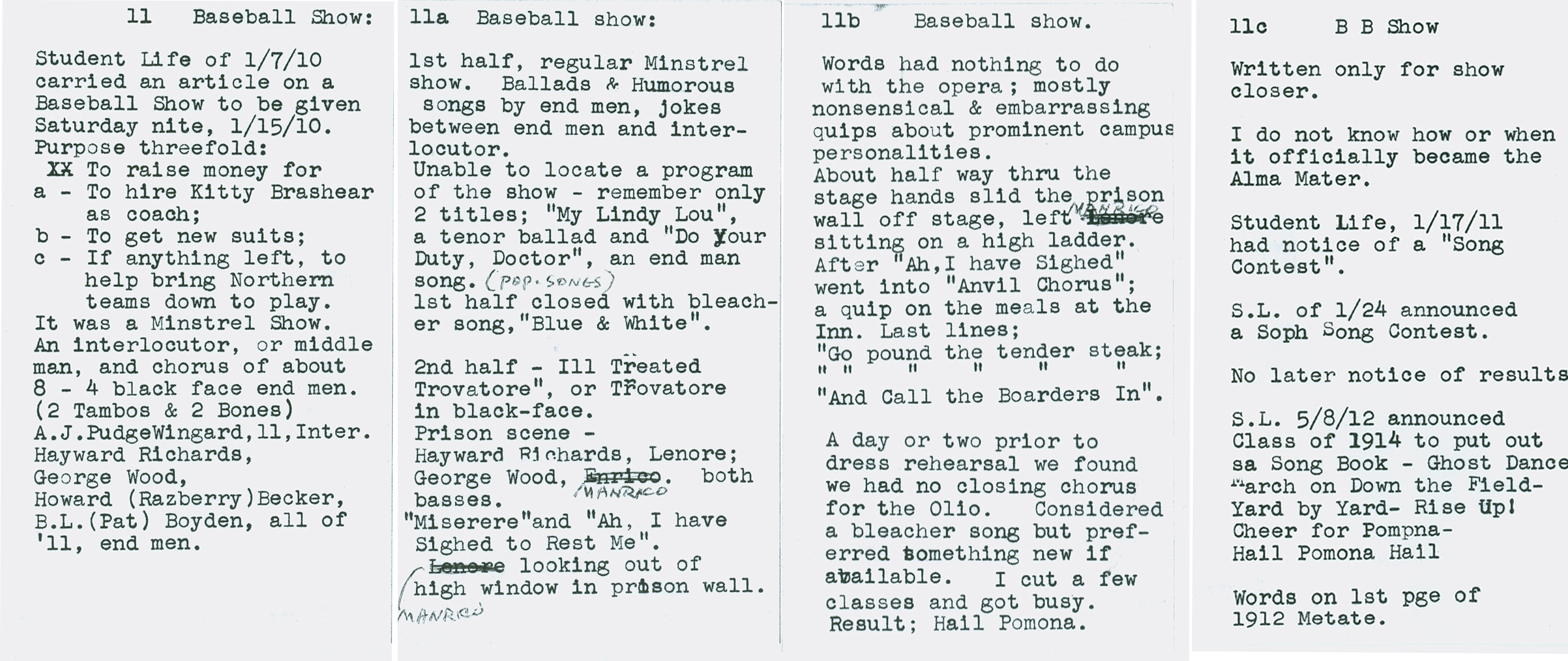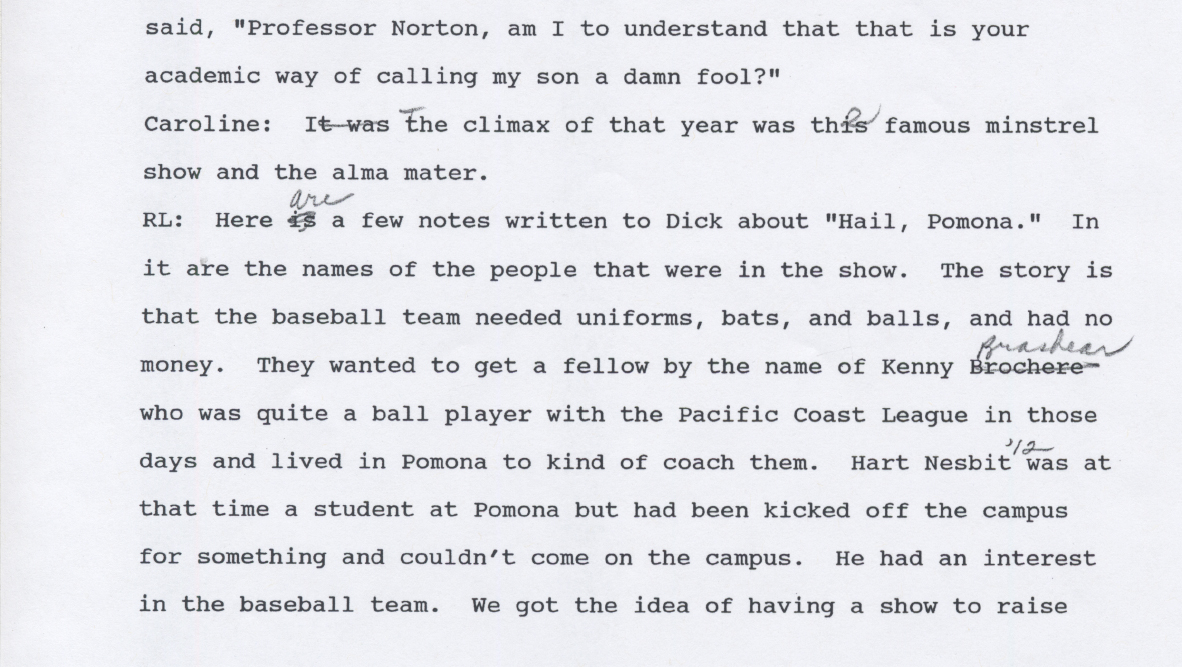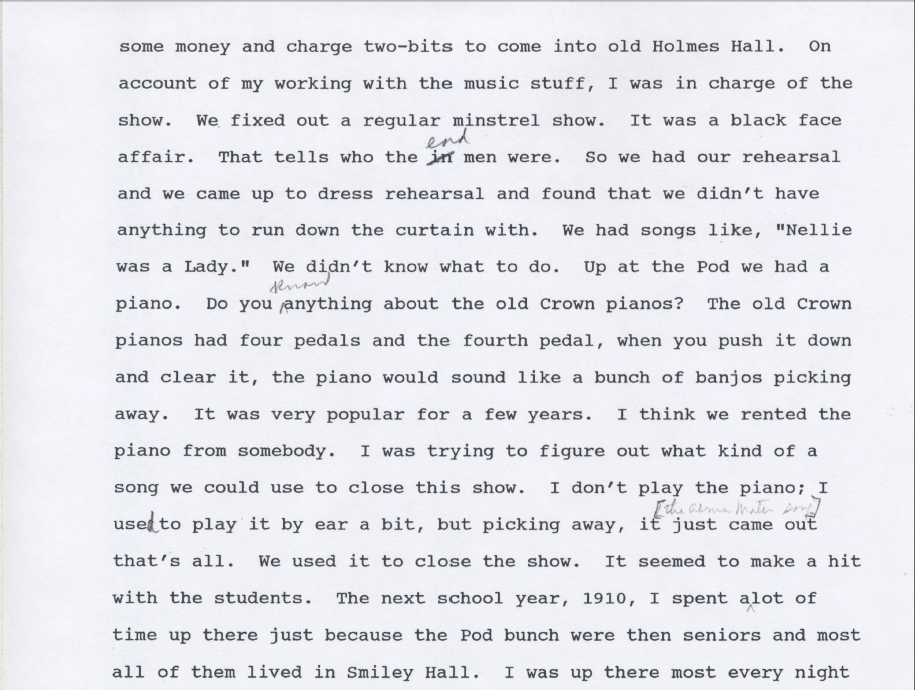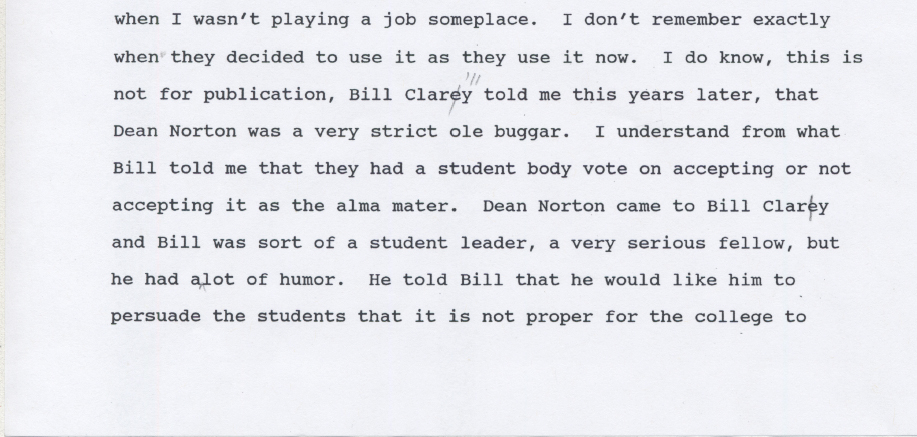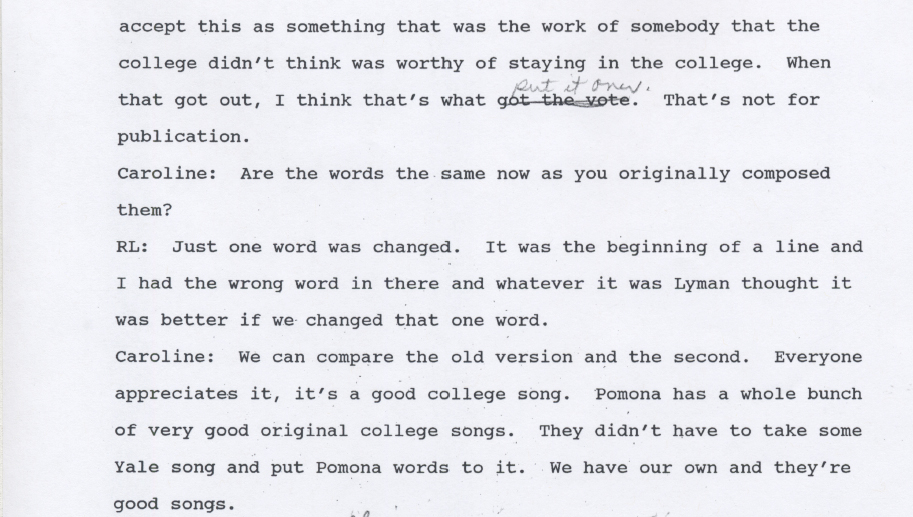
|
|||||||
| Notice: All documents were recovered from the Special Collections room at Honnold library, or at the alumni house. |
| THE ALMA MATER |
|
A letter written to the Pomona College Magazine in the Spring of 2002 from alumni Carl L. Olson '66 acknowledges the song was written for a blackface performance:
"Congratulations on the music theme
for the winter issue. Pomona has a truly
rich history.
--Carl L. Olson '66
Richard Loucks, in a collection of personal notes,
letters to and about, and news articles featuring him, discusses
his history as a musician at the college. In the quote below he specifies he wrote the song for the "olio" or final act of a blackface performance:
"A day or two prior to dress rehearsal we found we had no
closing chorus for the Olio. Considered a belacher song but
preferred something new if available. I cut a few classes and
got busy. Result: Hail Pomona". Loucks notecards:
In his notes he writes that the song was "Written only for
show closer." And that he does not "know how or when it
officially became the Alma Mater." Though in a interview he gave later on, he describes the situation where the song was adopted: "Dean Norton came to Bill Clarey and Bill was sort of a student leader, a very serious fellow, but he had alot of humor. He told Bill that he would like him to persuade the students that it is not proper for the college to accept this as something that was the work of somebody that the college didn't think was worthy of staying in the college. When that got out, I think that's what got the vote. That's not for publication"
-Richard Loucks Loucks interview:
|
Contact
Related Sites |
This research was carried out for the Committee on College Songs
by
student Cyrus Winston under the guidance of Professor Kim Bruce and
Professor Sidney Lemelle.
